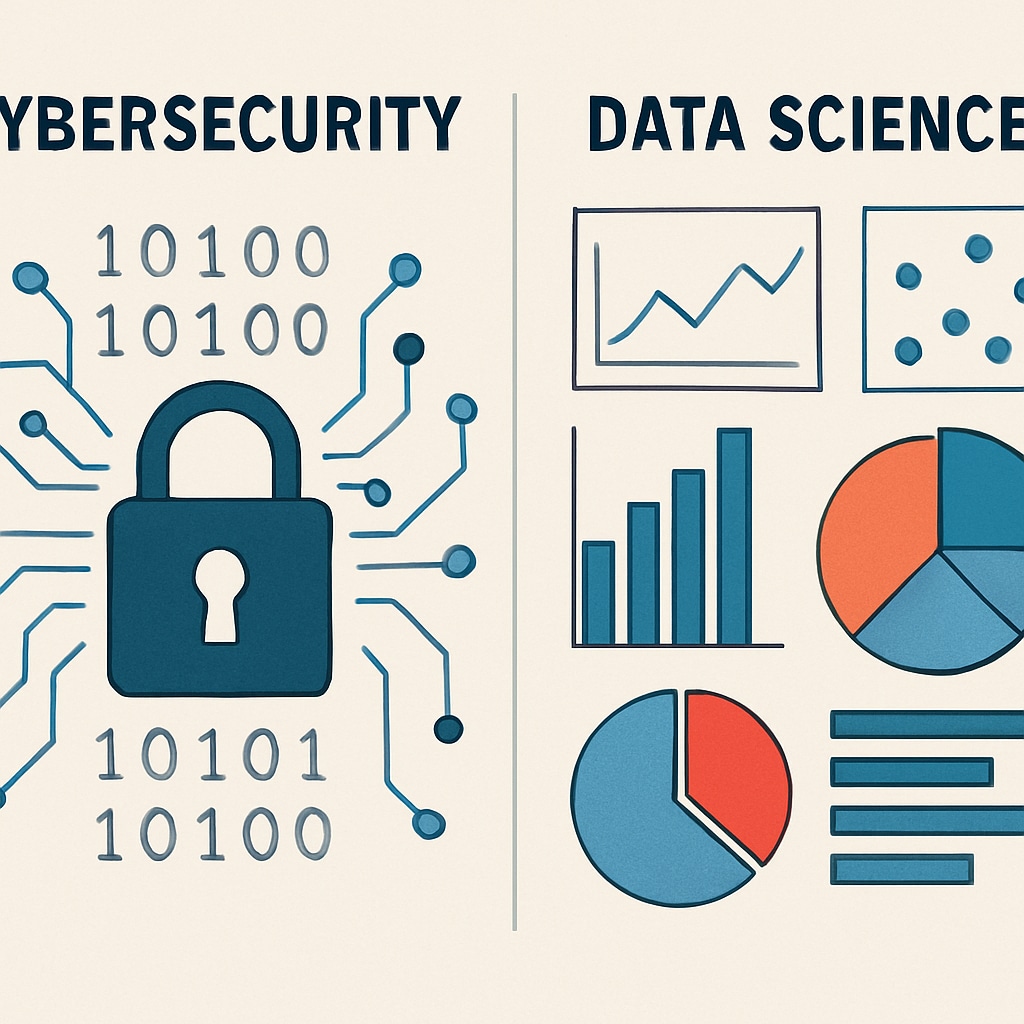In today’s digital age, the fields of cybersecurity and data science engineering are becoming increasingly popular, especially among K12 students exploring their future career options. Both industries offer lucrative opportunities, diverse learning paths, and unique lifestyles, making them attractive choices for tech-savvy young learners and their families. In this article, we’ll compare these two fields in terms of educational requirements, job prospects, and long-term career implications to help students and parents make informed decisions.

Understanding the Basics: Cybersecurity and Data Science Engineering
Cybersecurity focuses on protecting computer systems, networks, and data from digital attacks. Professionals in this field prevent breaches, manage risk, and ensure the safety of sensitive information. In contrast, data science engineering revolves around analyzing large datasets to extract valuable insights. Specialists in this area use programming, statistics, and machine learning to solve complex problems across industries.
Both fields are essential in today’s tech-driven world, but they require different skill sets. Cybersecurity emphasizes vigilance, problem-solving, and knowledge of security protocols, while data science engineering demands analytical thinking, mathematical proficiency, and expertise in coding languages like Python or R.
Educational Paths: What Do Students Need to Study?
Students interested in cybersecurity should focus on subjects like computer science, network security, and cryptography. Many universities offer specialized cybersecurity programs, and certifications such as CompTIA Security+, Certified Ethical Hacker (CEH), or CISSP can boost employability. For K12 students, developing foundational skills in IT and coding is a great starting point.
On the other hand, aspiring data scientists should prioritize mathematics, statistics, and programming during their academic journey. Popular certifications include AWS Data Analytics, Microsoft Azure AI Fundamentals, and Tableau Desktop Specialist. Early exposure to tools like Python and SQL can set students up for success in advanced data science courses later.
- Cybersecurity: Focus on coding, IT fundamentals, and network defense.
- Data Science Engineering: Build expertise in statistics, machine learning, and database management.
Career Prospects: Job Opportunities and Growth
Cybersecurity professionals are in high demand as cyberattacks continue to rise globally. Roles such as security analyst, penetration tester, and incident responder offer competitive salaries and growth opportunities. For example, according to the U.S. Bureau of Labor Statistics, the median salary for information security analysts was $102,600 in 2022, with faster-than-average job growth expected.
Similarly, data science engineering boasts strong job prospects due to the increasing reliance on data-driven decision-making across industries like healthcare, finance, and marketing. Positions such as data scientist, machine learning engineer, and business analyst are highly sought after, with salaries often exceeding six figures. For example, Britannica highlights the transformative impact of data science in shaping modern industries.

Work Environment and Lifestyle: Cybersecurity vs Data Science
Cybersecurity roles often involve high-pressure situations, especially during incident responses or security breaches. Professionals may work for government agencies, corporations, or consulting firms, and some positions may require irregular hours to address urgent threats.
Data scientists, on the other hand, typically enjoy a more predictable work environment, focusing on research, analysis, and collaboration. While deadlines can be demanding, the overall pace of work is generally less stressful compared to cybersecurity. Both fields, however, require ongoing skill development to keep up with technological advancements.
Making the Right Choice: Factors to Consider
Ultimately, choosing between cybersecurity and data science engineering depends on personal interests and aptitudes. Students who thrive in high-stakes scenarios and enjoy problem-solving may find cybersecurity more fulfilling. Those with a passion for data analysis and mathematical challenges might prefer data science.
Parents and educators should encourage K12 students to explore both fields through extracurricular activities, internships, or online courses. Exposure to real-world applications can help them identify their strengths and make informed career decisions.
Conclusion: Cybersecurity and data science engineering are two compelling career paths, each with its unique challenges and rewards. By understanding the differences in education requirements, job prospects, and work environments, K12 students can confidently navigate their future in the digital age.


